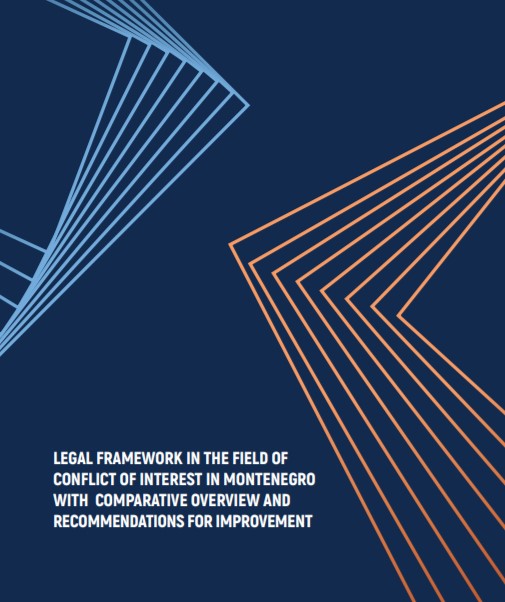More than five years and eight months have elapsing since Montenegro started implementing the Law on Prevention of Corruption (hereafter referred to as the Law) and established the Agency for Prevention of Corruption (hereafter referred to as the Agency) as an autonomous and independent body in charge of preventing conflicts of interest, restrictions on the performance of public functions, verification of reports on income and assets of public officials and other issues relevant to the successful fight against corruption, That’s long enough period to make an assessment application of the Law and efficiency of the work of Agency.
The expectation placed on the Law and Agency was for them to align Montenegro with international and European Union standards in addressing corruption and preventing conflict of interest.
Since Montenegro is in the process of accession to the European Union, its progress in addressing problem of corruption is subject to monitoring and annual reporting by the European Commission. Therefore, the European Commission reports represent the most relevant external assessments of Montenegro’s efforts in the fight against corruption.
The Study shares the Commission’s positive view that as a result of recent changes to the Agency’s leadership in 2020, “the Agency has embarked on a proactive approach to the challenges of its independence, integrity, impartiality, transparency, non-selective approach and quality of its decisions, improving overall performance.” However, the Study shares the European Commission’s view that significant work is needed to address the Agency’s overall effectiveness, and that improved results and public confidence in Agency will depend on the Agency’s continued efforts to ensure its integrity, impartiality and accountability.
This Study accordingly, taking into account the European Commission’s reports and Agency performance data, gives a comparative review of regional approaches that offer a set of good practices, and undertakes its own analysis to generate recommendations for improving both the Law and the performance of the Agency. The Study intends to assist the Ministry of Justice, Human and Minority Rights, the Agency and the Parliament of Montenegro in maintaining the latter’s momentum in improving its performance and considering amendments to the Law as part of this process.
In this regard, the target group of this publication is legal practitioners working on legislative development and conflict of interest issues in the field.
When it comes to the methodological aspect and following this introduction, the Study presents the most relevant legal instruments in this area, focusing on the standards of the United Nations, the Council of Europe, and the European Union, and a segment from the last European Commission Report on Montenegro. Then, due to their similar legal heritage to Montenegro, the Study evaluates the legal frameworks for the prevention of conflicts of interest, restrictions on the exercise of public office and the reporting of income and assets of the republics of Slovenia, Croatia, and Serbia. Next, the legal framework of Montenegro is presented, with an additional focus on the work of the Agency being the key anti-corruption body in charge of preventing conflicts of interest, restrictions on exercising public functions and reporting on income and assets in Montenegro. This resulted in a separate chapter at the end of the publication containing specific recommendations for improving the situation in this area, with emphasis on the necessary amendments to the legislative framework, as well as key recommendations regarding the work of the Agency for Prevention of Corruption and continuing cooperation with the European Commission.
